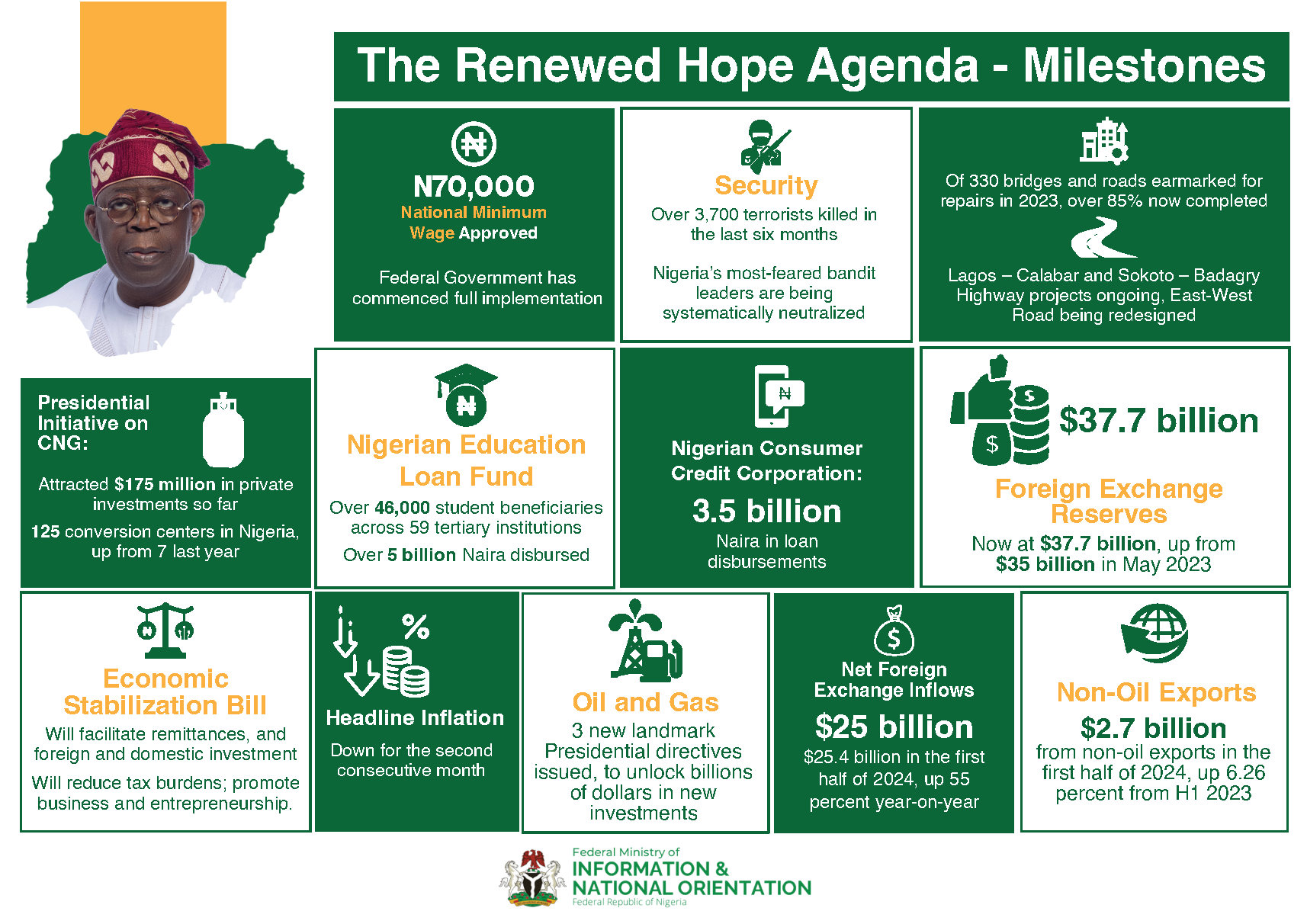Stakeholders in Rivers politics have expressed divergent views on the six-month emergency rule in the state, with some describing it as ineffective while others said it restored peace.
It would be recalled that President Bola Tinubu, on March 18, declared a state of emergency on Rivers due to heightened political crisis.
The crisis was as a result of disagreement between Gov. Siminalayi Fubara and his political godfather, Nyesom Wike, the Minister of Federal Capital Territory, over control of state political resources.
The President suspended Fubara and members of Rivers House of Assembly, and announced retired Vice Admiral Ibom-Ete Ibas as the Sole Administrator of the state.
Analysing the impact of the emergency rule, Mr Egele Bright, a Peoples Democratic Party Chieftain in Andoni Local Government Area, said that Ibas restored peace to the state. Bright said that, as the Sole Administrator, Ibas politically stabilised the state and doused tension, which was not there before the emergency rule.
“The smooth conduct of local government council elections and the swearing-in of chairmen and councillors across the 23 LGAs have also driven political stability to the grassroots,” he added.
In his contribution, Mr Henry Ekini, National Legal Adviser of the Committee for the Defence of Human Rights(CDHR), described the emergency rule as avoidable. He said the administrator had no mandate from the people and did not deliver on welfare and infrastructure. “There were no public engagements or projects completed in the six months”.
Ms Annkio Briggs, a Niger Delta activist, said that Ibas did not implement key projects such as Trans-Kalabari Road and coastal bridges. She said that the emergency rule denied the citizens elected leadership and undermined human capital development.
Briggs said that the emergency rule was not in the best interest of Rivers people, adding that it shifted the state political control.
On Fubara’s reinstatement, Briggs said that there were concerns since the National Assembly was on recess.
Comrade Savior Oscar, President South-South Youths Initiative, a civil society group, called for an investigation into the six-month administration of Ibas. Oscar said that Ibas conducted local government elections in the state and they were criticised by many Nigerians.
According to him, the emergency rule negatively affected socio-economic activities in Rivers.
A lawyer, Mr Ambrose Igwe, expressed dissatisfaction that Ibas could not unveil those behind crude oil pipeline explosions that painted the state as unsafe. “One of the major reasons for which the state was declared unsafe was a serial pipeline explosion in Bodo and Bonny,’’ he said.
He said that unveiling the perpetrators would have been the sole administrator’s first task.
On his part, Prof. Daniel Mbee, Director of the Centre for Disaster Risk Management and Development Studies, urged Rivers residents to focus on the development of the state.
He said that Ibas had done his part although Rivers had stagnated compared to states such as Lagos. “Port Harcourt remains the only developed city in the state, while other areas are still rural. Development must be people-centred, not driven by personal or political ambitions,” Mbee said, calling for unity to reposition Rivers for growth.
Meanwhile, Prof. Ibibia Worika, Secretary to the State Government, has announced commencement of the state’s transition from emergency rule to democratic governance.
He announced an inter-denominational church thanksgiving as part of transition activities.
Commenting on the planned transition, a lawyer, Mr Gogonte Obadiah, noted that the state of emergency was expected to last for an initial period of six months, which would elapse on Sept. 18.
According to him, Rivers residents believe that reinstatement of Fubara will be feasible because the state is peaceful. Obadiah expressed the hope that Fubara would be able to navigate the system when reinstated. “We believe strongly that there will be harmonious relationship between the executive, legislature and all other stakeholders,’’ he said.
Mr Neo Wilcox, a Port Harcourt resident, said that personal or collective interests were expected to play out upon Fubara’s reinstatement, urging a common ground and necessary compromise in the interest of the state. “We look forward to political and overall stability,’’ he said.
Mr Felix Ogeh, a businessman, urged collective efforts in protecting peace in Rivers to avoid more crisis. He called on politicians and the mass media to avoid actions and reports that would jeopardise peace and progress of Rivers.
He appealed to all stakeholders to support reinstatement of Fubara to avoid crisis.
A security consultant, who spoke on condition of anonymity, urged security agencies to beef up surveillance in sensitive areas of the state to check infiltration by those who might be dissatisfied with the peace in the state. (NAN)
Dear readers, we really need your support to keep on serving you with authoritative, truthful, and juicy stories everyday. For your support, please reach out to the editor @gavelinternational66@gmail.com


